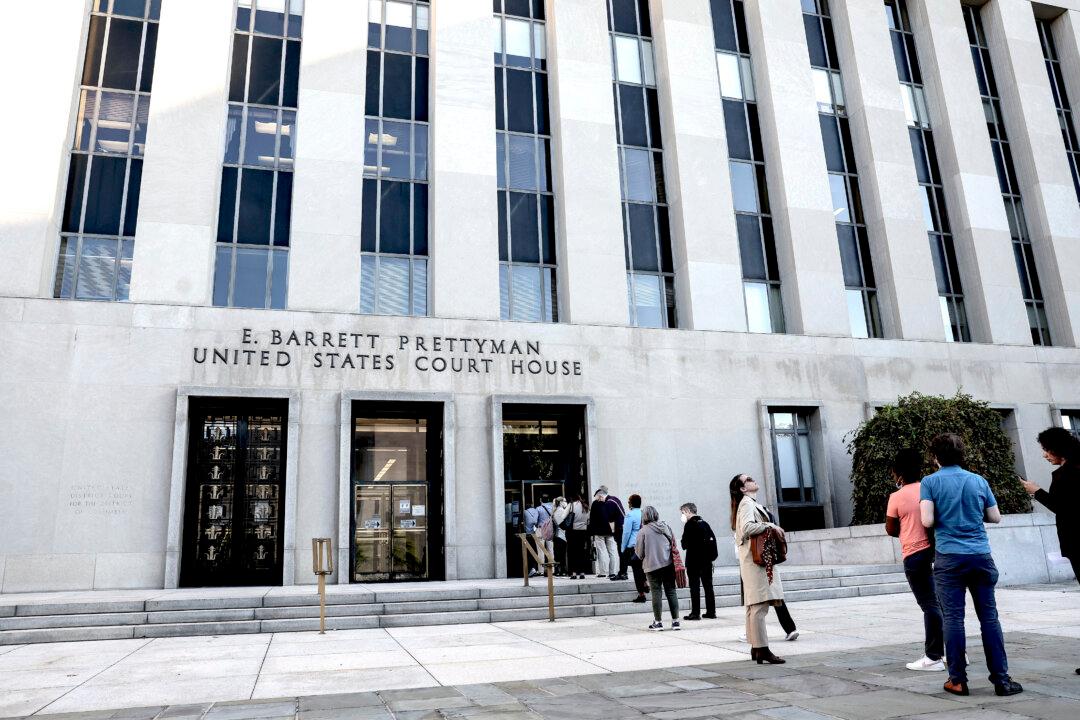A federal law that dates to 1792 could play a major role in whether five Oath Keepers defendants on trial for seditious conspiracy in Washington are convicted of an alleged plot to attack the Capitol on Jan. 6 or acquitted because one can’t conspire to do something legal.
The Insurrection Act has become widely discussed in the run-up to the trial of Oath Keepers founder Elmer Stewart Rhodes III, Kelly Meggs, Kenneth Harrelson, Jessica Watkins, and Thomas Caldwell.





